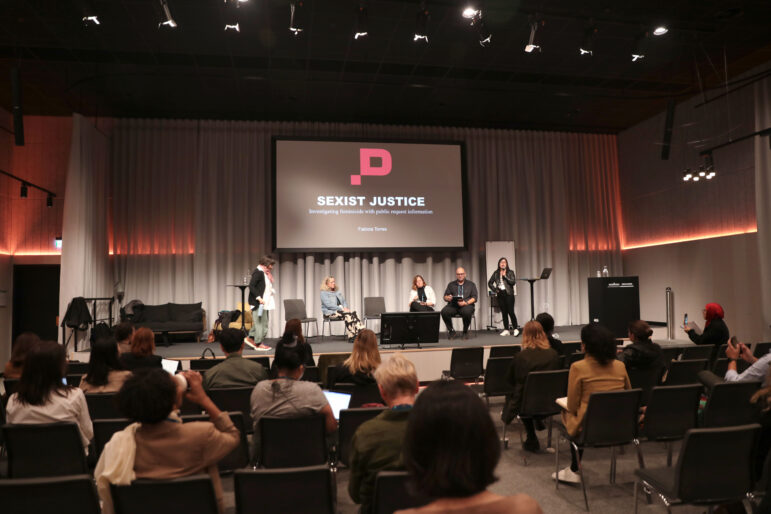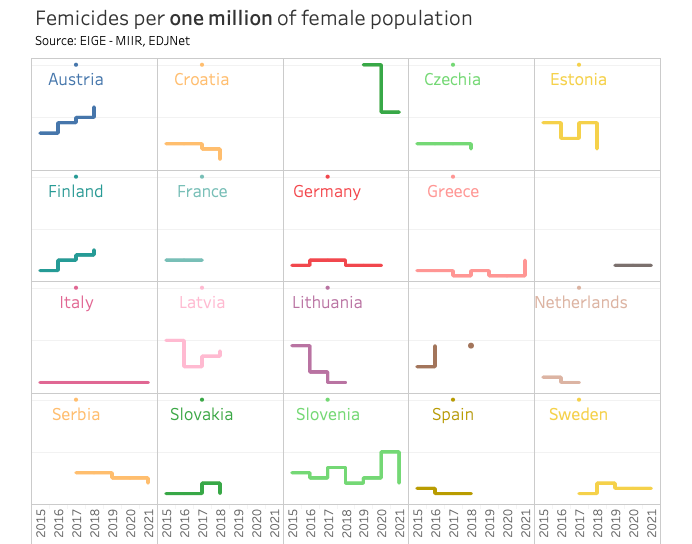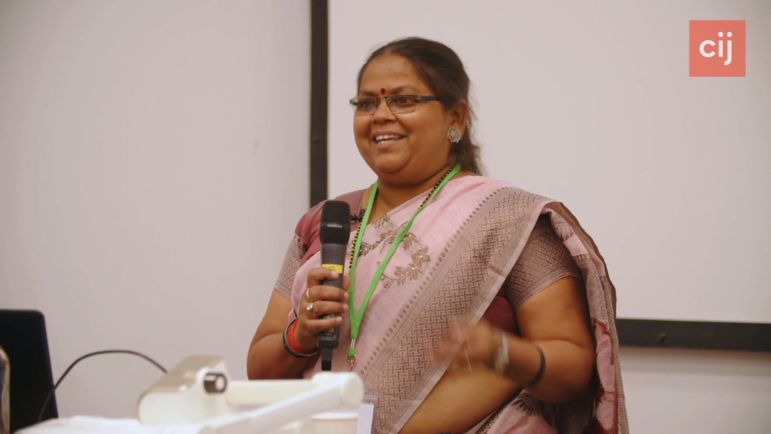
GIJC23 Reporting Tools & Tips
Humanizing without Sensationalizing: Investigating Femicide
How can journalists use data without reducing the murder of women to crime statistics, and produce a narrative that humanizes without sensationalizing?

How can journalists use data without reducing the murder of women to crime statistics, and produce a narrative that humanizes without sensationalizing?

GIJN’s weekly round-up of the best in data journalism looks into algorithmic bias in welfare investigations in Rotterdam, mapping the rise of femicides in Europe, and the deadly impact of cold temperatures in India.

From birth control disinformation to cross-border surrogacy, from high-level sexual harassment to the brutality of “everyday” violence against women, 2022 was a year marked by a number of noteworthy investigations into stories with a gender angle.

Meera Jatav, the co-founder of the award-winning, grassroots feminist media organization Khabar Lahariya, has won admiration for her courageous investigations into gender-based violence and caste in India. Here is the keynote speech she delivered at the Centre for Investigative Journalism’s summer conference in London.

Speaking during GIJN’s Tips and Tools from Women Investigators webinar, reporters from Germany, Kenya, and Turkey recounted their experiences dealing with court injunctions, going undercover, and investigating under-reported stories.

The Turkish press is enduring a period when the most basic journalism practices are hindered due to the state of emergency, the pandemic, and other issues. Despite this, GIJN Turkish found several praiseworthy stories produced by independent journalists this past year. Here we highlight eight stories chosen for their significance, public interest, their use of investigative tools, data sources and techniques, and their commitment to social accountability.

At GIJC21, hard-hitting investigations journalists shared some great story ideas that could be replicated by reporters across the globe to bring about changes in their society.
Femicide — the intentional murder of women because they are women — is a global problem. According to the UN’s latest estimates, 50,000 women and girls are killed each year by intimate partners or other family members. GIJN’s latest resource aims to help journalists understand what femicide is, find and understand the data available, and suggest which experts to interview.